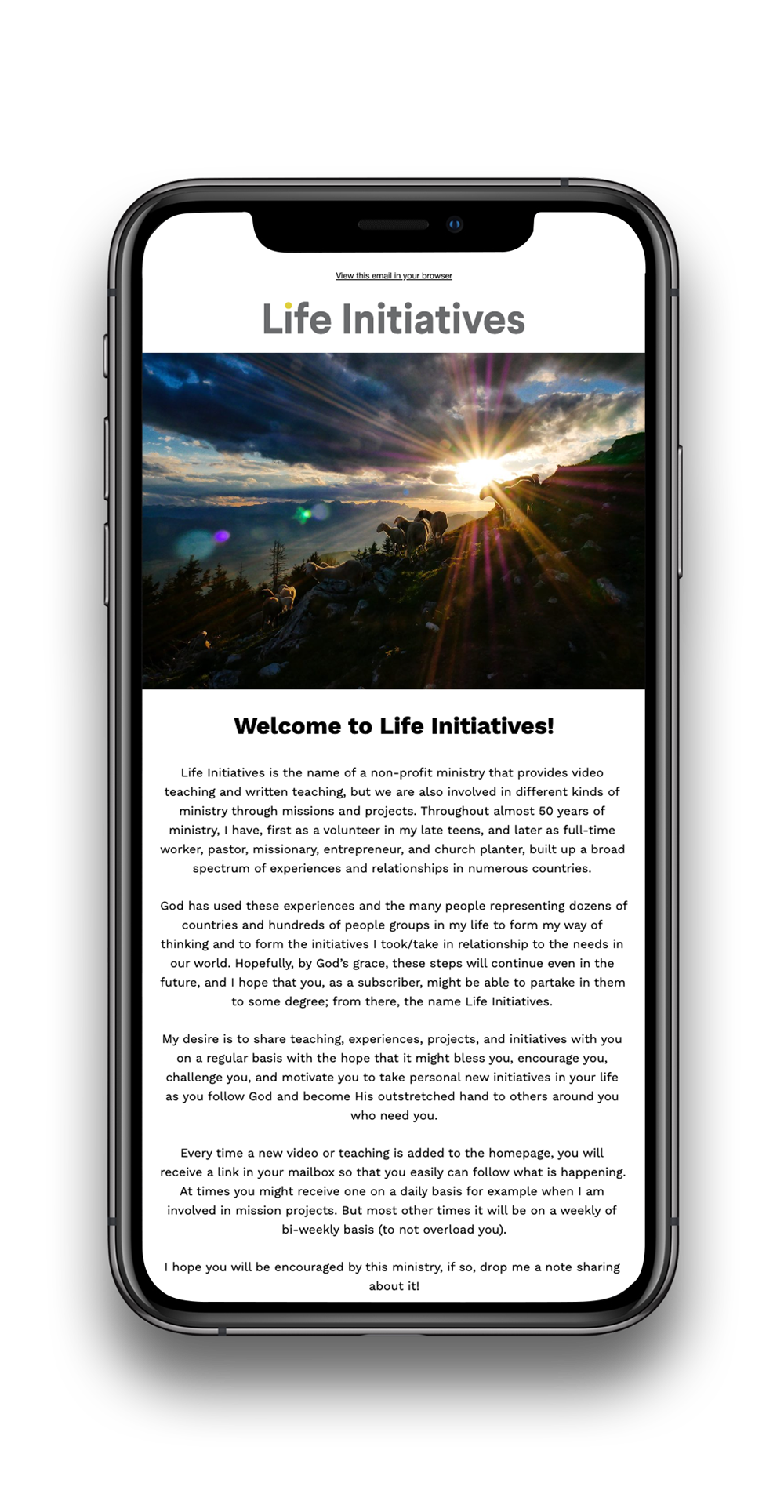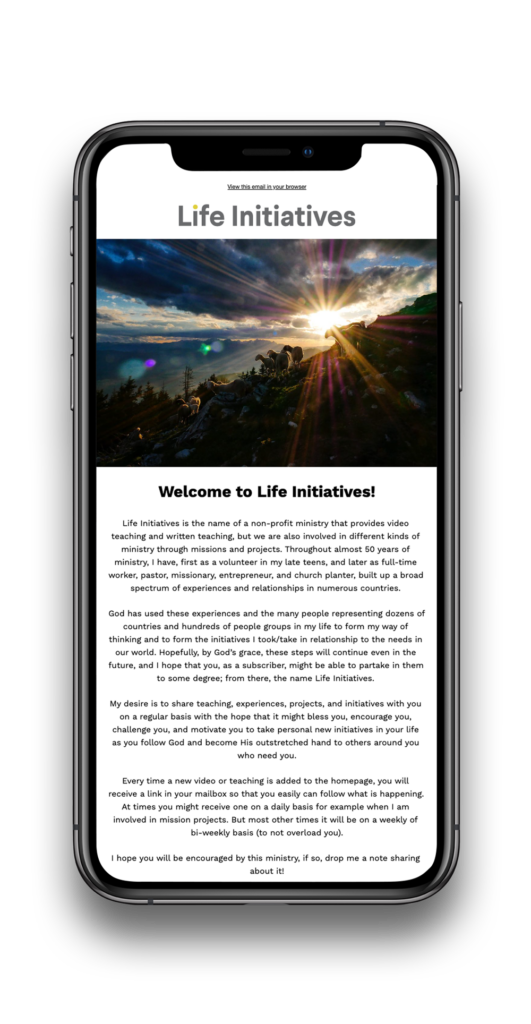I know that you and I are under the tyranny of the urgent. I know that we all are subject to that what the Bible calls the prince of the power of the air. We are part of this world, and we are influenced by it. I want you to just think with me about that.
Funny, isn’t it?

I know that you and I are under the tyranny of the urgent. I know that we all are subject to that what the Bible calls the prince of the power of the air. We are part of this world, and we are influenced by it. I want you to just think with me about that. I don’t know whether you are like me or if you’re willing to admit it; but ask yourself when you call your friends, or just about anyone in the work world – and ask that ritual question “How are you doing?” Take actually a minute to listen to the answers. I’ll bet you you’ll hear a good percentage recite their “to do” lists and tell you how busy, busy, busy they are.
And, of course, busy is good. It means people have full, interesting lives. What is not so good is busy, busy, busy and a need to report that to everyone we meet.
How many times do you do it? You’re asked how you are, and, instead of saying something meaningful, you fall into that culturally acceptable “I’m just soooo busy” answer.
In fact, “extreme busyness” can be dangerous if it never stops, says Tom DeMarco, an organizational change expert who has done a lot of research about it. “Being highly productive doesn’t set up a company to be highly changeable, ” he says. It makes your company like “a car that can speed up but can’t steer.” And that’s what it does to us, too!
How so? Because all the downtime (or “empty time”) is being taken out of the day – all the time that used to go for planning, analyzing, inventing, contemplation, dreaming – even for eating lunch somewhere other than your desk. What we need is downtime or just “empty time”. Instead, people are playing up their busyness. Because that is what counts for in our society. Remember it means that you have a full interesting life.
Busyness means, “You’re getting used up. It also means you probably have no time for personal growth and “a lack of personal growth is your death sentence,”.
The problem, though, with extreme busyness – we lose out, not only on a neighborhood, community, and family life, but also on the “capacity to know how to be still, how to have leisure time, how to stop and reflect.” In other words, how to drive the car and steer at the same time.
Now, when I am addressing this subject, I am preaching to myself as well.
Ephesians 5: 15-16 says “Therefore be careful how you walk, not as unwise men, but as wise, making the most of your time, because the days are evil.”
Colossians 4: 5 “Conduct yourselves with wisdom toward outsiders, redeeming the time.”
Unlike many of the other resources God has given us, time is not renewable. We may lose money, but we can always earn more. We may lose our possessions, but we can always acquire new ones. But time is a non-renewable product. If we squander our time, it is lost forever.
All of us, but especially Christians, must carefully manage the time that God has given us. It is a valuable resource, and we can either spend it on ourselves or redeem it as a spiritual investment. We can spend it only once, and how we spend it can have eternal consequences. Let us not waste the resources God has given us. Instead, let us redeem the time and use it for God’s glory.
This brings me to 1 Cor. 9: 24 – 27, a well-known scripture that I want to use as an outline of setting the right priorities in our lives.
24 Do you not know that in a race all the runners run, but only one gets the prize? Run in such a way as to get the prize. 25 Everyone who competes in the games goes into strict training. They do it to get a crown that will not last, but we do it to get a crown that will last forever. 26 Therefore I do not run like someone running aimlessly; I do not fight like a boxer beating the air. 27 No, I strike a blow to my body and make it my slave so that after I have preached to others, I myself will not be disqualified for the prize.
It is not by accident that the apostle Paul compares the life of a Christian with one of a marathon runner. Paul uses this vivid picture when he compares the Christian life to a grueling marathon. Actually, the Christians in Corinth, to whom this letter was addressed, were very well aware of the marathon; they only lived less than 20 km away from the famous Isthmian games. Therefore, he challenges them not just to enter the race of faith, but to go “all out” and run so as to win! God wants winners, but notice, not winning necessarily in the way of the world! In our sport-crazed society, no metaphor better illustrates the reality of living for Christ fully and to redeem the time and opportunities.
How does one use time and opportunities wise? By living a focused life! Here are some principles that will help us overcome the tyranny of the urgent and the loss of opportunities. Let’s look at some key words, all starting with the letter “D”:

(v 24). No one can win a marathon half-heartedly. Every runner must have a will to win, a strong motivation. It isn’t enough to be in the Christian race. When we enter this race, we must take our spiritual life seriously. We must push to the limit, deeply committed. With this I do not say that we need to try to earn our salvation. That is given freely on the cross by Jesus Christ. But when we have entered, we are called to make whatever sacrifice needed to win the victor’s crown at the end.
The most highly regarded prize of the Roman Empire was the “stephanos”, the laurel like crown that was placed on the head of the champion. Made of some leaves, this crown brought instant fame, tax-exemption, and free education. Calling for that commitment, Paul says: (v.25!) If they are so dedicated to win such a crown and short-lived fame, how much more are we to be motivated to gain a lasting glory?!
(v. 25). In the games, victory depends on the athlete’s rigorous training. Every runner entered strict training under the watchful eyes of officials. Some of you dancers in this church know exactly what I am talking about. They had to work for years- lifting weights, running laps, regulating sleep, and restricting their diet. Self-control means we must exercise authority over our own lives, saying “no” to pleasures at times and establishing disciples and habits all for the sake of winning.
(v. 26). A marathon course is clearly marked, it winded through the city of Paris, but the runner needed to keep his eyes on the course because of all the potential dangers, cobblestones, uneven pavement etc.
Paul said that he was not running aimlessly, or uncertain, without a goal. The track of God’s will is clearly designed and marked by His word. Those that say that they don’t think the Word is God is clear about different issues are often those people who do not know the word of God at all. All they pass on is hearsay.
God’s track is a narrow path that includes every aspect of our lives. Winning the prize requires to seeking direction from the Bible and following it!
(v. 27) Athletes have to give up comforts and “punish” their bodies, saying “no” to a life of easy adjustments and led by body impulses.
The same self-denial is necessary for the Christian. After making that point, Paul changes in his metaphor from running to boxing saying that we must beat our bodies, giving knockouts to fleshly desires. We must resist temptation, lusts and other things that so easily can defeat us and remain pure. Even Paul himself said about his focus: (v 27!)
Sign up for life-changing insights, directly to your inbox.

© 2023 All Rights Reserved, Life Initiatives

Sign up for life-changing insights, directly to your inbox.